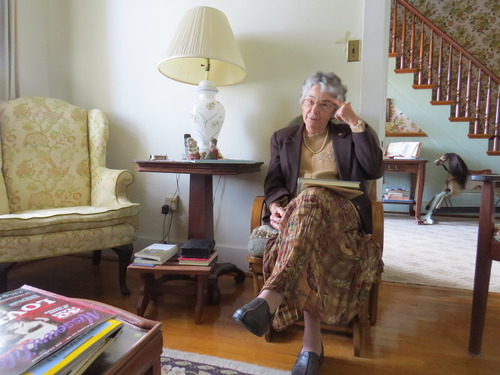
Why do American and European retirees live worthily and enjoy life after the end of their work, and most of our old people lead a miserable existence? Is it possible to somehow change this sad reality, at least in the foreseeable future? The answer is simple: if the state cannot ensure a decent old age, then “saving the drowning people is the work of the drowning people themselves”!
Who is to blame and what to do?
The logic of the developers of pension calculation schemes in Russia, in general, is clear: the money is needed “here and now”, and we will think about the future later. The problem is aggravated by a far from joyful demographic situation: according to experts' forecasts, very soon the number of working citizens and pensioners will be equal. Of course, it is joyful to realize that the life expectancy (or, to put it in the heartless, official language, “period of survival”), though slowly, but is increasing. However, under the existing procedure for calculating pensions, an ever greater part of the allocation of workers to the PFR will be spent on today's retirees, and what amount of pensions is guaranteed to those who are now actively working is a big question.
Russia is positioning itself as a social state. It is clear that future retirees will not die of hunger, but their standard of living is unlikely to be worthy. Hence the conclusion: our future is only in our hands.
A bit of math
Lawmakers have done their best: not everyone can understand the formulas for calculating pensions. In any case, yesterday's schoolchildren, barely stretching the minimum score of the unified state examination in mathematics, are unlikely to cope with this task.
From TV screens we are constantly told that the guarantee of a high future pension is a “white” salary and a great length of service. Let's be honest: those who receive a significant part of their salary “in an envelope” are not so few. Should I worry about this and make a complaint to the employer? Well, let's understand.
Hypothetical source data:
- a woman born in 1985;
- labor activity from 25 years;
- 1 child care leave which is 3 years;
- does not plan to work after retirement at 55;
- the official salary is 20 thousand rubles, plus 10,000 "in an envelope."
With the help of a pension calculator, it is proposed to calculate 2 pension options:
- Pension deductions in full (22% of the official salary) go to the insurance part;
- Part of the deductions (6%) goes to the savings account.
In the first case, the pension will be 9134 rubles, in the second - 9135. It is clear that, seeing the result of such calculations, the vast majority of future retirees will not be associated with the funded part. In this way, the state unobtrusively pushes Russians to send the full amount of pension contributions to the distribution system, from which current payments are made.
We change one of the parameters: let the entire salary (in our case, 30,000 rubles) be official. According to the logic of things, in this case, the pension should be 1.5 times higher (30000/20000 = 1.5) and amount to 13,700 rubles. Alas, an impartial calculator "gives out" a pension only in the amount of 11,200 rubles.
Entering different data, it is possible to reveal an amazing pattern: the higher the official income, the lower the ratio of the future pension to the current salary. The conclusion suggests itself: rumors of a large pension with a high “white” salary are greatly exaggerated.
help yourself
And is it really a terrible "gray" salary, in which part of the income is not subject to any taxes and is paid "in an envelope"? In our case, it is obvious that direct savings on income tax in the case of a “white” salary of 20,000 and a total salary of 30,000 will be 1,300 rubles. By the way, almost as much will save on deductions to the FIU and the employer.Calculate the amount of future income, if this amount is postponed monthly to a bank deposit.
Initial data:
- initial deposit - 1300 rubles
- monthly payment - 1300 rubles;
- interest rate - 11% per annum;
- interest capitalization - quarterly;
- the estimated accumulation period is 25 years.
It is not worth remembering convulsively the formulas of arithmetic progression: the deposit calculator can be found on almost all banking sites. The calculation results are shown in the following table:
|
Accumulation period |
5 years |
10 years |
15 years |
20 years |
25 years |
|
Amount in the account |
104444 |
283169 |
592859 |
1112123 |
2029298 |
Thus, by opening a deposit and replenishing it monthly with the amount of income tax savings, by the time of retirement, our hypothetical heroine will have accumulated 2029298 rubles. It is clear that by ceasing to work, it will no longer replenish the account. We leave the final amount on the term deposit at the same 1% with a monthly interest payment.
Simple calculation: 2029298 * (11/12) / 100 = 18601 rub. per month
Impressive? Do not forget to add on the state-appointed pension - 9134 rubles. Total your income after the end of employment will be nearly 27,735 rubles. Agree, you can live. At the same time, the “body” of the contribution (2029298 rubles) remains intact - there will be something to bequeath to the children and grandchildren.
All calculations are absolutely transparent, if necessary, you can easily make them based on your own data.
It is worth noting that the money that you have independently deferred for retirement is always at your complete disposal (which cannot be said about the pension contributions that fall into the depths of the Pension Fund of the Russian Federation). In the event of a change in the economic situation in the country, you can always re-register a deposit, transfer it to another bank on more favorable terms, convert it into currency, etc. You can also use this amount at any time in case of unforeseen life circumstances. I do not want to be sad, but in the event of the death of a citizen (even before retirement), there is no return of pension savings.
Of the minuses, one can note the riskiness of deposits in virtually any bank and the unpredictability of the prospects for the Russian economy. But even in the case of the loss of all the "gray" savings, your pension will be only slightly lower than those of those who are officially comparable to your income.
Pension Fund of the Russian Federation: a survival strategy
The conclusion is simple: a decent old age can be provided only independentlyyou should not hope for the state. Probably many present and future retirees such calculations will anger to the depths of the soul. Yes, not entirely legal and not patriotic. But ideologists of pension reforms are doing everything possible to undermine the remnants of citizens' confidence in the pension system. The last innovation is the evaluation of pension rights in points: it is assumed that the value of the “point” will be determined annually on the basis of the budget and income of the Pension Fund of the Russian Federation. This means that the size of a pension can be either increased or decreased (a direct analogy with a floating exchange rate).
And finally, a quote from the speech of V.Putin (2002): “I consider it absolutely justified that a part of the population, young people, will be able to independently accumulate certain pension resources and be able to dispose of these resources.". Thanks for the valuable advice, Vladimir Vladimirovich! We heard you!


